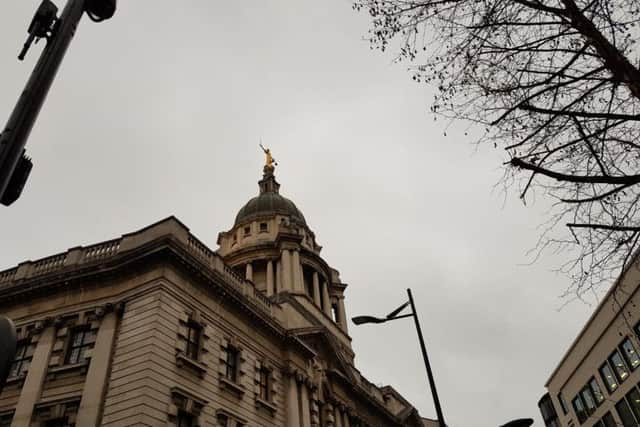Shoreham airshow crash: here's what happened on day two of Andy Hill's trial


Hill, 54, of Standon Road, Buntingford, faces 11 charges of manslaughter by gross negligence. He has pleaded not guilty to all charges.
See how the trial unfolded in our live blog, run by our reporter from the Old Bailey courtroom throughout the day.Hill was flying a Hawker Hunter jet at the airshow in August 2015 when the stunt display ended in tragedy.
Advertisement
Hide AdAdvertisement
Hide AdThe aircraft failed to pull up in time from a 'bent loop' manoeuvre and it crashed onto the A27 road.


The prosecution yesterday accused Hill of negligence in relation to the 11 deaths.
Hill 'not in control of what he was doing'
Mr Hill's defence barrister Karim Khalil QC said his client was not in control of the aircraft during the fateful 'bent loop' manoeuvre.
He told the court: "He is not a cavalier pilot and is not a pilot who was - as has been suggested - playing fast and loose with the lives of onlookers.
Advertisement
Hide AdAdvertisement
Hide Ad"We say that this may not have been about pilot error at all because Andy Hill may not have been in control of what he was doing."
He argued that the flightpath of the Hawker Hunter jet shows that his client was cognitively impaired.
"A proper analysis of the last manoeuvre leads one to the conclusion that he was suffering from cognitive impairment and he was not in full control of his actions.
"Nobody could have made those various errors if they were fully in control of what they were doing and was aware of the situation that was developing. They were simply too numerous."
Advertisement
Hide AdAdvertisement
Hide AdProsecution says pilot was 'in control' of the Hawker Hunter
Prosecutor Tom Kark QC said: "There is clear evidence to suggest that Mr Hill was conscious and in control of the aircraft during and throughout the manoeuvre.
"The aircraft crash a as a result of Mr Hill's negligence and such this breach of duty caused the deaths of 11 men."
Pilots should practice emergency escapes, court hears
Airshow flying director and RAF veteran Rodney Dean was the first witness called to give evidence in the trial.
Advertisement
Hide AdAdvertisement
Hide AdHe said pilots should practice what they would do in the case of an emergency like engine failure.
He told the court: "The aircraft is of secondary importance to the people on the ground.
"Pilots should at least - at the very least - work through in their mind what their actions should be in the event of an emergency."
Airshow director 'did not see' the moment the plane tragically crashed
Advertisement
Hide AdAdvertisement
Hide AdMr Dean told the court he saw the Hawker Hunter arrive but did not witness the fateful moment.
He told the court: "I saw the Hunter arrive. I saw it do its first pass which didn't concern me at all.
"And then I got a call from air traffic saying the Hunter had crashed.
"I did not see it. I did not hear it.
"It was clear from the smoke that there was a major accident and a major fire.
"It was immediately obvious that it was a major disaster."
The trial continues.